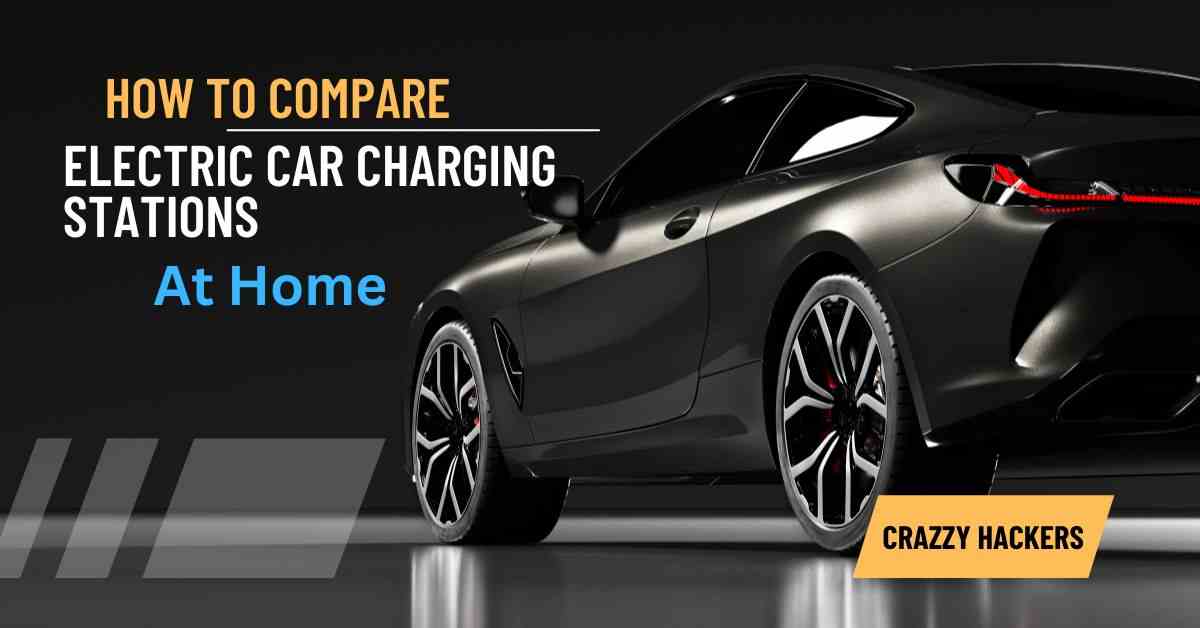In the era of eco-conscious living and the increasing popularity of electric vehicles (EVs), many individuals are considering installing home charging stations. The convenience of having your charging point not only saves time but contributes to a more sustainable lifestyle. However, with a variety of options available, it’s crucial to understand how to compare electric car charging stations for your home. In this guide, we’ll walk you through the key considerations and help you make an informed decision.
Charging Speed and Power
The charging speed of an electric car charging station is a critical factor to consider. Different models offer varying charging speeds, measured in kilowatts (kW). The higher the charging speed, the faster your EV’s battery will recharge. Assess your daily commuting needs and choose a charging station that aligns with your lifestyle. Additionally, consider the power supply capacity of your home to ensure compatibility with the selected charging station.
Connector Type
Electric cars come with different connector types, and it’s essential to choose a charging station that supports your vehicle’s charging port. Common connector types include SAE J1772, CHAdeMO, and CCS (Combo). Ensure compatibility to avoid any inconvenience and to guarantee a seamless charging experience.
Smart Charging Features
Smart charging features can enhance the efficiency and convenience of your charging station. Look for options that offer smartphone connectivity, scheduling capabilities, and remote monitoring. Smart charging stations often allow you to optimize charging during off-peak hours, potentially saving you money and reducing strain on the electrical grid.
Installation and Compatibility
Consider the ease of installation and compatibility with your home’s electrical system. Some charging stations may require professional installation, while others can be set up as a DIY project. Check the electrical specifications of your home and consult with an electrician to ensure a safe and efficient installation process.
Cost and Value
While cost is a significant factor, it’s essential to consider the overall value of the charging station. Evaluate factors such as warranty, durability, and customer reviews. Investing in a reliable and durable charging station may incur a higher initial cost but can save you money in the long run by avoiding frequent repairs or replacements.
Energy Source and Environmental Impact
Consider the source of energy for your charging station. If possible, opt for renewable energy sources such as solar power to further reduce your carbon footprint. Additionally, research the environmental impact of the charging station’s production and disposal to make an eco-friendly choice.
Government Incentives and Rebates
Check for government incentives and rebates for home charging station installations. Many regions offer financial incentives to encourage the adoption of electric vehicles and home charging infrastructure. Taking advantage of these programs can significantly offset the initial cost of the charging station.
Conclusion
Comparing electric car charging stations at home involves careful consideration of charging speed, connector type, smart features, installation, cost, energy source, and available incentives. By understanding these key factors, you can make an informed decision that aligns with your electric vehicle needs and sustainability goals.
For more detailed reviews and recommendations on the best electric vehicle chargers, you can refer to Best Electric Vehicle Chargers on The New York Times Wirecutter. This comprehensive guide will provide additional insights to help you choose the most suitable charging station for your electric car.





